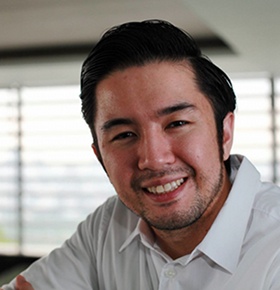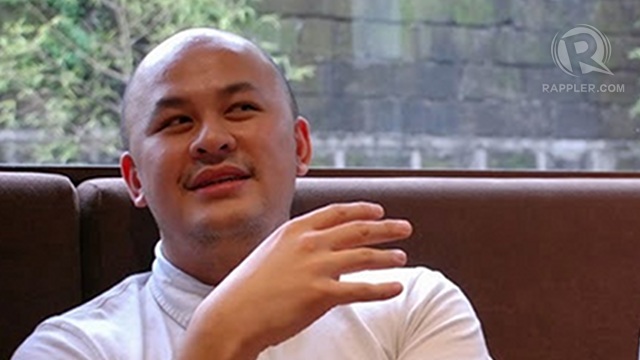SUMMARY
This is AI generated summarization, which may have errors. For context, always refer to the full article.
 For Kalibrr CEO Paul Rivera, the Philippine location of his venture that is transforming job search and training in the business process outsourcing industry is merely a beachhead from which he could revolutionize employee recruitment around the world.
For Kalibrr CEO Paul Rivera, the Philippine location of his venture that is transforming job search and training in the business process outsourcing industry is merely a beachhead from which he could revolutionize employee recruitment around the world.
It’s a big dream that Rivera has the tools for. He had the education: UC Berkeley, Political Economy of Industrialized Societies. He has the network, having worked at Google and built his own 300-employee BPO that specialized in servicing Silicon Valley startups.
Perhaps most relevantly, he had the support system in Kickstart, the incubator backed by Globe Telecom. We discussed working with Kickstart in particular and incubators in general for the entrepreneurs and executives who might want to avail themselves of their capital, their mentorship, and their network.
READ AND WATCH: Talking Kalibrr with Paul Rivera
Rivera spoke of the need to find a real problem that needs solving, as many entrepreneurs may be tempted to address what is in fact an anti-problem. In addition to this, the problem must be one that you’re truly passionate about, and should you want to work with investors, one that can scale.
Once you’re in an incubator or got investors, Rivera emphasized the need to fine-tune your business model through both intuition and data. In entrepreneurial speak, this is called pivoting. Having the right team, he said, can help you get at the heart of your business model. They must not only be intelligent, but they also must be brave enough to challenge you.
Here are snippets from our chat:

What is the problem that Kalibrr’s trying to solve?
Help jobseekers find and get jobs and to help companies find the talent they need to grow their businesses. We solve this problem by deeply understanding our customers – those who are hiring and understanding the jobs they are trying to hire for.
Once we have that understanding, we then use the same technology to give jobseekers to qualify for a job.
Once the entrepreneur finds that problem like you did, what does he do from there?
Find one that you’re actually passionate about. I’ve seen many entrepreneurs who have an idea and they’re just pursuing it for the money. And then they realize, wow, I’m building a startup – it’s freaking really, really hard.
So they quit because they weren’t really passionate about it. They were only passionate about the idea of building a startup and making money. That’s why 9 out of 10 startups fail: The founders quit.
Why are you passionate about Kalibrr?
Because finding a job is easy, but getting a job is difficult. College graduates just don’t understand the skills that they need to be employable in the workforce. I think we see Kalibrr as augmenting what we learned in high school or college with a skills-based training driven by employers that want to hire you.
We want to augment college education with real world skills – skills that frankly college will not teach you. Some college graduates in the Philippines may have a diploma but lack basic skills.
Maybe they can’t type or write emails. Maybe they have issues with pronunciation. Two, some Filipinos have to drop out of school because of a few thousand pesos in tuition that they can’t pay – perhaps because they spent it at Republiq (night club in Manila).
That amount of money was massive to that individual, and since they no longer have it, they have to drop out of school. Then they have to apply for a job that you don’t need an education to get. Again, because they lack skills.
What’s your big picture vision for Kalibrr?
The model that we’re pioneering is to focus on the skills you can show, rather than what is on your resume and this is a model that can go all over the world, especially in the emerging markets, such as Vietnam, Kenya, and Colombia.
In the Philippines alone, there were 40,000 call center training scholarships given out last year. These don’t cost a job seeker any money. They can earn these scholarships through a training vocational institute partner – there are over a hundred in the country.
Or they can apply directly to specific BPOs and if they fail at that interview, that BPO can offer them a $100 scholarship to take remedial training to look at some of the issues that they have. Eventually, we want to build partnerships with some of the organizations that offer these scholarships to offer this training for job-seekers online.
How important, then, is the potential scale of a business model?
You need to have a sizable market opportunity. Kickstart probably won’t invest in you if your total addressable market is less than P50 million. It’s not large enough for them.
You want to be able to identify a market that has a large opportunity where there are either no players, or incumbent players that are very weak or are very slow to move.
Once you’ve found a problem that you’re passionate about and one whose business model scales, what do you do next?
I started Kalibrr in January 2012. I did not know that Globe was going to set up a venture arm. The timing was very fortuitous because I was going to start a company in the Philippines, and my expectation was that I was only going to have to raise money in Silicon Valley because there was no funding or investors here.
After a few meetings with the [Kickstart] team, they decided to make a $100,000 investment in Kalibrr. I was very excited. They had invested in Kalibrr when it was really just an idea. That’s never been done in the Philippines. You don’t give money to strangers who just have an idea. That’s a very Valley thing to do.
What influenced your decision to pivot?
It was part intuition and part data that we were seeing. We knew at some point that we were going to sell our technology to BPO companies. We just decided to do it sooner because the data was telling us that the people we were attracting – the people that wanted the training – needed way more training than what we could offer.
We faced a decision: Do we say no to short-term revenue, and focus on the medium- to long-term, which involved building the technology that would enable us to do this at scale? We decided to pass up the monthly revenue and focus purely on building a product that could help more people and more companies with their problems. That’s not easy to make.
It was certainly a team decision. But ultimately we needed to do what’s best for Kalibrr.
What would you say to the entrepreneur who may not know how to determine the core model or direction of their business?
Surround yourself with people who are extremely talented and can challenge you. The team that we built in Kalibrr are people who don’t just say yes to anything that I want them to do. They more often than not say, “Yes, that’s a good idea. But here’s a better one.” I think that is ultimately what will allow us to solve the problem and build a very successful company.
We’ve created an environment where he can confidently say no to me, and I will listen. Most Filipino companies are not set up that way. It’s a very, yes-boss-let’s-jump-off-the-cliff-all-tied-together-type of culture.
American start-up culture is a much more collegial type environment, where we want ideas to spring up from the bottom – from our engineers, from our biz dev team, from our operations team.
That would be my number one piece of advice: Make sure that as CEO, you are humble enough to know that you are not the smartest person in the room. You must be humble enough to want to hire people that are way smarter than you. That way, they can give you the data and insight that you may not have so that you can collectively arrive at the best decisions.
How helpful is an incubator like Kickstart?
We didn’t just take money from Kickstart. We’ve also taken money from investors in Singapore, investors in the Valley, and Kickstart has been very supportive in making the initial introductions to these investors. Kickstart also helped us get into a global startup mentorship program called H2, which is being run by one of the senior executives at LinkedIn.
Since Kickstart is owned by Globe, which is owned by the Ayala Corporation, it means we already have a direct relationship with those companies if we want to sell our platform to them.
I know you yourself try to mentor other entrepreneurs. What advice do you give them?
As an entrepreneur, you want to be cockroach. Cockroaches don’t die. You cut off its legs, you cut off its wings, it’s still alive. You throw a nuclear bomb at it, it’s still alive. Every force in nature is trying to kill you. Gravity itself is trying to keep you down.
Take, for example, Airbnb. For two years, no one wanted to invest in them, and they were out of money. They had an idea, but they were not getting any traction.
During the 2008 presidential elections, they designed Obama-O’s and McCain-O’s cereal boxes. They stuffed generic cereal in them and sold them on eBay for $40 apiece. They raised $60,000, which was enough to buy the time they needed to accelerate their traction. Of course, they are now a $6 billion dollar company.
The founders were cockroaches. You should be a cockroach, too. – Rappler.com
Rappler business columnist Ezra Ferraz graduated from UC Berkeley and the University of Southern California, where he taught writing for 3 years. He now consults full-time for educational companies in the United States. He brings you Phlippine business leaders, their insights and their secrets via Executive Edge. Follow him on Twitter: @EzraFerraz
READ:
[Executive Edge] The business of elite security
[Executive Edge] Filipino innovator’s dilemma
What do bitcoin and remittances have in common?
Add a comment
How does this make you feel?
There are no comments yet. Add your comment to start the conversation.